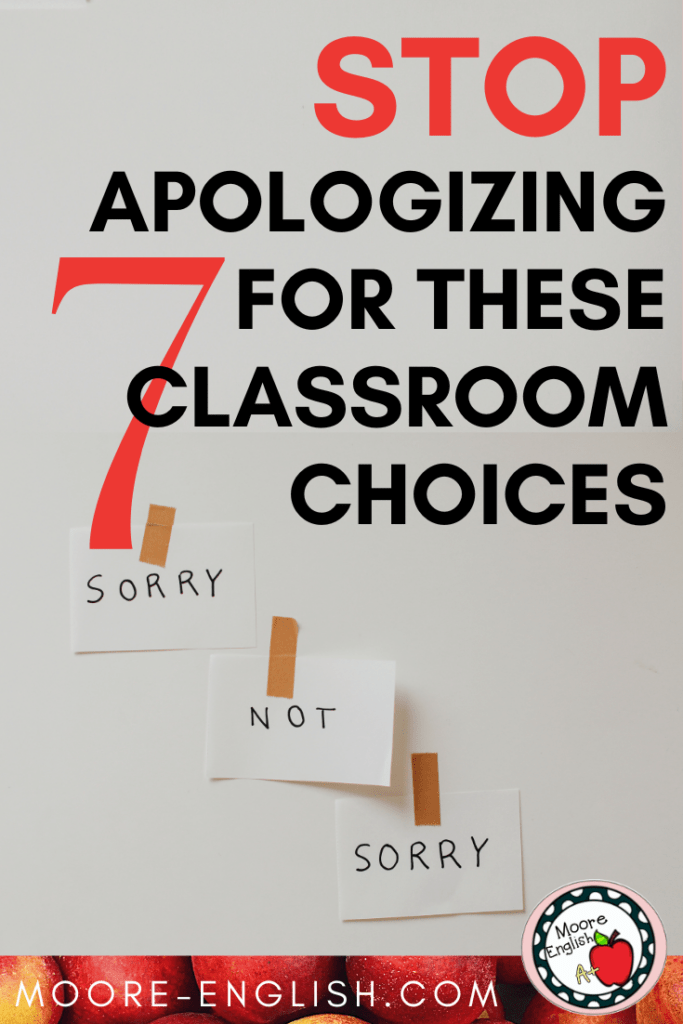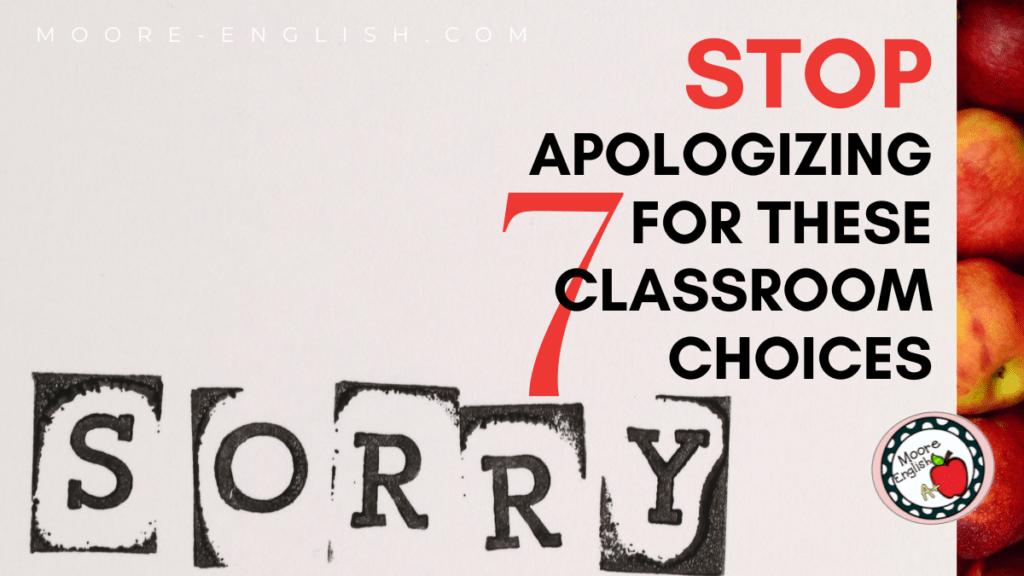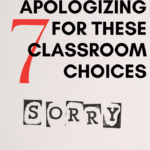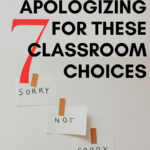Recently, I saw a social media post focused on reading habits readers should stop apologizing for. The list included topics like enjoying certain tropes or authors, favoring large print, or preferring print copies.
I enjoyed the post, but I don’t have any reading habits I look at with shame. (Here’s my favorite books of 2024, 2023, 2022.)
However, the post got me thinking about other parts of my life. In particular, I started thinking about my classroom. For which classroom habits and practices should teachers quit apologizing? These are my top 7!
This post this post may contain affiliate links. Please read the Terms of Use.
No More Apologizing for Honoring Your Health
Earlier this year, I was the sickest I have ever been. My doctor assures me it was not the flu or COVID, but I have never been so sick. Previously, I had never called into school for sickness. All my absences had been pre-approved and scheduled far in advance. However, this illness knocked me down for an entire week.
This experience helped me realize that teachers (myself included) should stop apologizing for using our sick days. (And for cases like this, I use this free sub cover sheet.)
Teachers should also not apologize for actions that protect our physical and mental health or time with our loved ones. This includes honoring our contract times (including not checking email off of contract hours). This also includes saying “no, thank you” to unpaid duties, committee assignments, or similar commitments.
I’ve written about this before, but certain toxic behaviors can be detrimental to teachers’ well-being. So I’m no longer apologizing for rejecting those behaviors. Similarly, I’m no longer willing to martyr myself for my job, so I cannot apologize for sustainable practices.
Sustainable Classroom Practices
A sustainable classroom practice works for you and for your students. It’s whatever keeps you engaged and invested in the profession without burning yourself out or being negligent.
Here are some sustainable classroom practices I will not apologize for:
- Skipping out on educational fads, trends, and buzzwords. When I see something I think is worthwhile, I will try it. However, if my professional judgement and instincts tell me that a newfangled idea might not work and may take up too much bandwidth, I’m not going to apologize for taking a pass. My growth mindset is most vibrant when it’s not being forced or shoved in an untenable direction.
- Making classroom management choices that work for me. Classroom management is the most exhausting part of teaching and often the most misunderstood. So if my classroom management style isn’t the cutest or most social media worthy, that’s okay. I will make choices that work for me and my students.
- Encouraging student self-efficacy. Teachers make nearly 2000 choices a day, so anything that encourages student self-efficacy is a plus. If that means we spend more time practicing routines and procedures, that’s okay. No apologies here.
Responding with Grace
I am a huge advocate of classroom consistency. If there’s a syllabus policy, I make every effort to apply it consistently. If there’s a handbook rule, I work hard to make sure I honor it.
However, I will no longer apologize for giving grace to a student, to a colleague, or to myself. My professional judgment has been honed over the years. I trust that training, and sometimes I recognize that we all need to be treated with a little grace.
Last Thoughts
As I was writing this post, I noticed how many times I mentioned “professional judgement.” Because education is a field with mostly male leaders and woman laborers, “professional judgment” often gets ignored or minimized.
“Professional judgement” gets mired in discussions of teachers’ instincts, emotions, and other “soft skills” traditionally associated with femininity.
However, what this angle minimizes is your experience, education, and training.
You are an actual expert in your subject area. No one can take that away from you, and you should never apologize for relying on your expertise.











